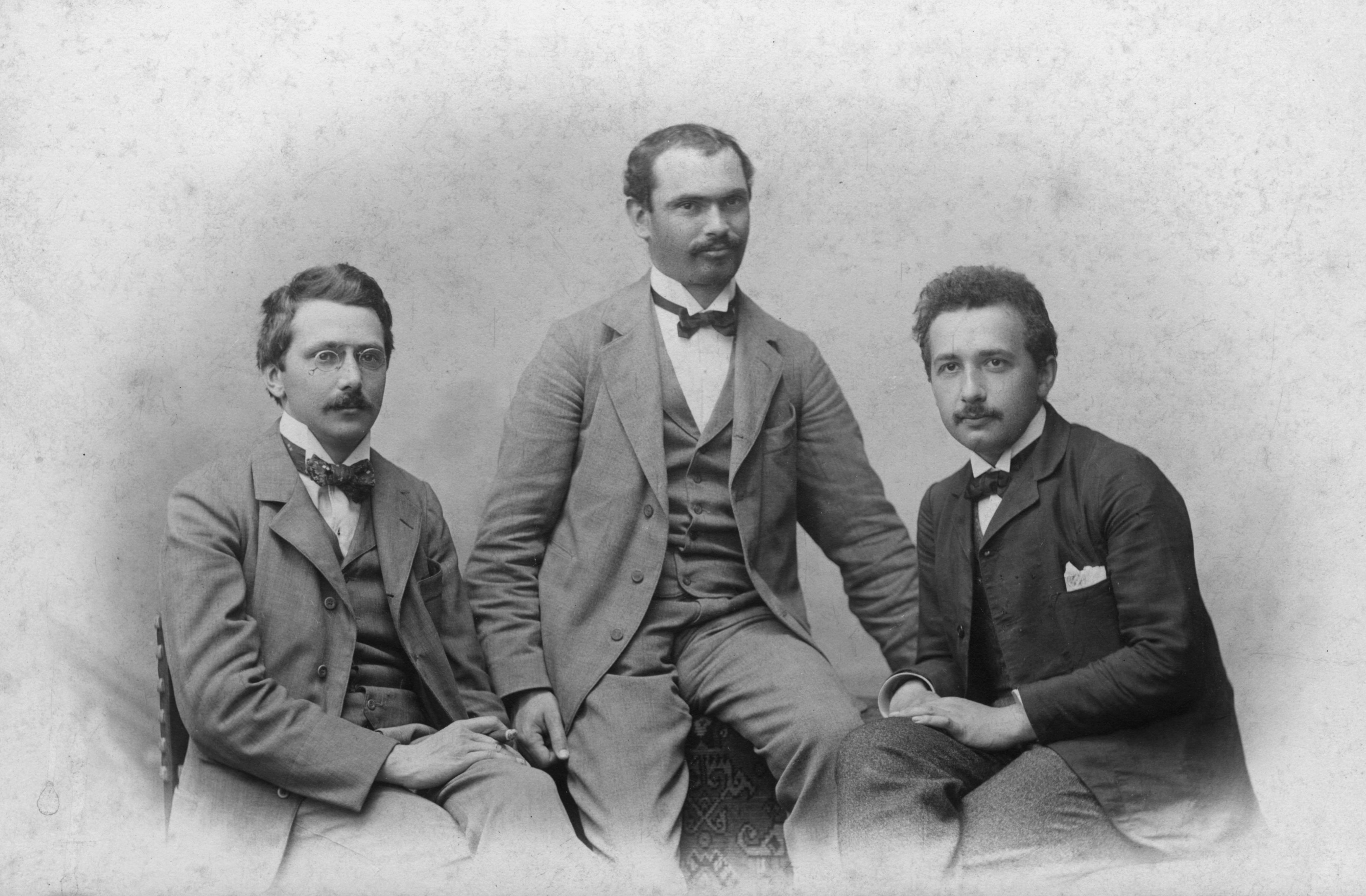Maurice Solovine on:
[Wikipedia]
[Google]
[Amazon]
 Maurice Solovine (21 May 1875 – 13 February 1958) was a
Maurice Solovine (21 May 1875 – 13 February 1958) was a
Akademie Olympia
{{DEFAULTSORT:Solovine, Maurice 1875 births 1958 deaths Romanian philosophers Romanian mathematicians Scientists from Iași
 Maurice Solovine (21 May 1875 – 13 February 1958) was a
Maurice Solovine (21 May 1875 – 13 February 1958) was a Romania
Romania is a country located at the crossroads of Central Europe, Central, Eastern Europe, Eastern and Southeast Europe. It borders Ukraine to the north and east, Hungary to the west, Serbia to the southwest, Bulgaria to the south, Moldova to ...
n philosopher
Philosophy ('love of wisdom' in Ancient Greek) is a systematic study of general and fundamental questions concerning topics like existence, reason, knowledge, Value (ethics and social sciences), value, mind, and language. It is a rational an ...
and mathematician
A mathematician is someone who uses an extensive knowledge of mathematics in their work, typically to solve mathematical problems. Mathematicians are concerned with numbers, data, quantity, mathematical structure, structure, space, Mathematica ...
. He is best known for his association with Albert Einstein
Albert Einstein (14 March 187918 April 1955) was a German-born theoretical physicist who is best known for developing the theory of relativity. Einstein also made important contributions to quantum mechanics. His mass–energy equivalence f ...
.
Biography
Solovine was born inIași
Iași ( , , ; also known by other #Etymology and names, alternative names), also referred to mostly historically as Jassy ( , ), is the Cities in Romania, third largest city in Romania and the seat of Iași County. Located in the historical ...
, a university city in eastern Romania
Romania is a country located at the crossroads of Central Europe, Central, Eastern Europe, Eastern and Southeast Europe. It borders Ukraine to the north and east, Hungary to the west, Serbia to the southwest, Bulgaria to the south, Moldova to ...
, near the border with Moldova
Moldova, officially the Republic of Moldova, is a Landlocked country, landlocked country in Eastern Europe, with an area of and population of 2.42 million. Moldova is bordered by Romania to the west and Ukraine to the north, east, and south. ...
. As a young student of philosophy in Bern
Bern (), or Berne (), ; ; ; . is the ''de facto'' Capital city, capital of Switzerland, referred to as the "federal city".; ; ; . According to the Swiss constitution, the Swiss Confederation intentionally has no "capital", but Bern has gov ...
, Solovine applied to study physics
Physics is the scientific study of matter, its Elementary particle, fundamental constituents, its motion and behavior through space and time, and the related entities of energy and force. "Physical science is that department of knowledge whi ...
with Albert Einstein
Albert Einstein (14 March 187918 April 1955) was a German-born theoretical physicist who is best known for developing the theory of relativity. Einstein also made important contributions to quantum mechanics. His mass–energy equivalence f ...
in response to an advertisement. The two men struck up a close relationship and Einstein was said to say to Solovine a few days after meeting him: "It is not necessary to give you lessons in physics. The discussion about the problems which we face in physics today is much more interesting; simply come to me when you wish. I am pleased to be able to talk to you."
One day Solovine suggested reading and debating the works of great authors. Einstein agreed enthusiastically and soon mathematician Conrad Habicht (1876–1958) became involved in what was to be known as the "Akademie Olympia" ( Olympia Academy). Often their meetings, held in Einstein's flat, would last until the early morning hours.
On one occasion Solovine missed a scheduled meeting in his flat, preferring to listen to a concert in the city. He had prepared a meal for his friends with a note: "Amicis carissimis ova dura et salutem." (To my beloved friends, hard-boiled eggs and greetings). Einstein and Habicht turned his flat upside down after they had eaten the meal. Every piece of furniture was moved and plates, cups, forks, knives and books were scattered all over the flat. The rooms were also covered in smoke from Einstein's pipe and Habicht's cigar. They left a "worthy warning" on the wall: "Amico carissimo fumum spissum et salutem." (To our dearest friend, thick smoke and greetings). Einstein is reputed to have greeted Solovine the next evening with the following words: "You lousy guy, you were cheeky enough to stay away from a meeting of the Akademie to listen to the violin? Barbarian, idiot, stupid one, if you ever let us down this way again you’ll be expelled from the Akademie with shame." This meeting lasted until the morning to make up for lost time.
From November 1905, Solovine continued his studies in Lyon
Lyon (Franco-Provençal: ''Liyon'') is a city in France. It is located at the confluence of the rivers Rhône and Saône, to the northwest of the French Alps, southeast of Paris, north of Marseille, southwest of Geneva, Switzerland, north ...
. He then moved to Paris, where he helped publish the '' Revue philosophique'' between 1908 and 1919 and worked as a freelance translator and editor of classic texts on the history of European philosophy and of contemporary mathematicians. He was the principal translator of works by Einstein from German to French and represented Einstein's financial interest and agreements with publishers in France, for which Einstein paid him a percentage fee. Solovine remained in contact with Einstein with letters dated from 3 May 1906 to 27 February 1955.
Solovine published French translations of Greek philosophers. He died in Paris in 1958.
References
* Maurice Solovine (ed.) Albert Einstein - Lettres à Maurice Solovine, Paris: Gauthier-Villars, 1956.Akademie Olympia
{{DEFAULTSORT:Solovine, Maurice 1875 births 1958 deaths Romanian philosophers Romanian mathematicians Scientists from Iași